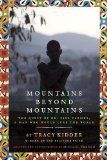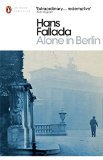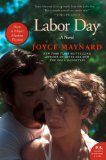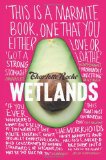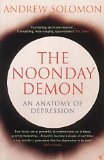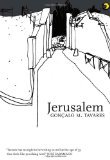Five words from the blurb: doctor, Haiti, difference, global, disease
Mountains Beyond Mountains is a book that demands discussion. It is a perfect book club choice, especially for those looking to branch into non-fiction for the first time. The book is a biography of Paul Farmer, an American doctor who has done an incredible amount to reduce rates of infection, particularly tuberculosis, around the world. The only problem is that Paul Farmer is a controversial man and this book forces us to question our concept of right and wrong.
As a teenager Farmer fell in love with the people of Haiti. After qualifying as a doctor he set up a clinic there and dedicated his life to improving the health of local people. The only problem is that he stole thousands of dollars of medicine and equipment from US hospitals in order to do so. Much of his illegal behaviour is glossed over and this book concentrates on the immense body of good work he has done. Many reviews have criticised Kidder for “hero worshiping” Farmer, but I think this element only adds to its discussability.
Mountains Beyond Mountains is an engaging account of Farmer’s life. The sections in which Kidder recounts the time he spent with him were particularly vivid and his admiration for Farmer’s work shines through.
And I can imagine Farmer saying he doesn’t care if no one else is willing to follow his example. He’s still going to make these hikes, he’d insist, because if you say that seven hours is too long to walk for two families of patients, you’re saying that their lives matter less than some others’, and the idea that some lives matter less is the root of all that’s wrong with the world.”
Haiti was also beautifully described. The poverty of the people was often distressing to read, but the Haitians were treated with respect throughout. I admired the way individuals were highlighted – allowing their terrible problems to be humanised, instead of just being a statistic. The political situation was also explained well and I discovered that this country has one of the most interesting pasts I’ve come across. It has made me keen to seek out more books based in this Caribbean country.
The second half of the book, in which Farmer becomes a global authority on infection, was less interesting to me. The book became more about statistics and, although what he achieved was impressive, it didn’t have the emotional impact of the first half.
Overall this was an important book. It raised many questions about global healthcare and left me feeling strangely guilty about my privileged place in the world.

.
